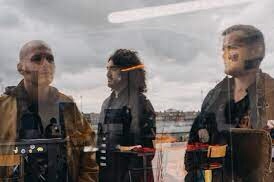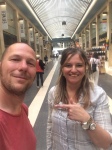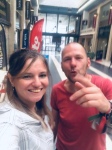What’s in a name?
3’Ain! عينWhere west joins east in sea(s) of stories. Narrated by a jazztrio on point.
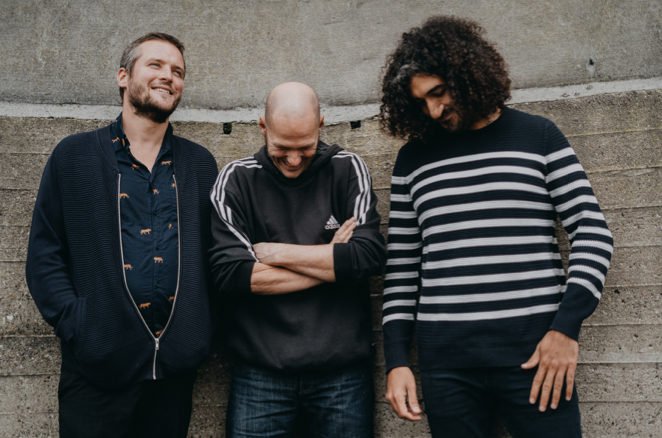
-picture by Diana Takcsova-
“Reversed three”
AC: Very important first question! Inspired by the eighteenth letter of the arabic alphabet, how do you pronounce the name of your newest band ? عين Because reportedly for western people it seems almost impossible to pronounce…
Piet: (laughs) Actually that’s what Wikipedia says, it’s more of a story than a reality. I played in a trio before with a Syrian cello player. Really eager to do something similar, I wanted to continue in a trio formula. Searching for a name, I really wanted it to refer to us as a trio and to our cultural bagage. Including our middle eastern influences through Yamen.
So I came up with this character as a reversed three, which is actually some sort of sign: عين

In Arabic chat and sms conversation , the AIN is often represented by a 3, sometimes explicitly mentioned as 3ain. So here comes in this 3 AIN.
Piet Maris
That was a good starting point for me. You should pronounce it a bit in the back of the throat. Ch ain, Three like in English, ein like in German if you want…:)
AC: Makes you wonder how does that go when announced on stage?
Piet: They always ask the question, how do we pronounce it? Actually it’s not so hard but it creates a story indeed. Although I wasn’t aware of that in the very beginning.
“Instant click”
AC: You met Yamen while making music for a play?
Piet: We actually met amidst the asylum crisis of 2016. Yamen had arrived in Belgium earlier but at some sort of manifestation, making a solidarity demo for refugees, we were kind of put together as musicians. “You will blend well” they said. Luckily we actually did;).
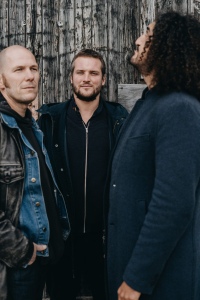
We instantly clicked. From that moment on, I started to involve him in my on going projects. Like this very special one in Mortsel. Initiated by Caroline Rottier. She’s a theatre maker, known for her inclusive work. In which she also involves people with disabilities. She asked me to do the music for this piece called “Move”. About people on the move. A very nice play and open project, offering a lot of artistic freedom.
We rehearsed with the actors. At first just me as a musician, to get the inspiration. At a certain point I pulled in Yamen, and the other cello-player to collaborate. This was our first creation together.
“Scrambled Ensor”
AC: Sounds really cool indeed. But so does your working space where 3’Ain gets inspired by all kinds of boats passing by… 🛥🚢⛴🛳
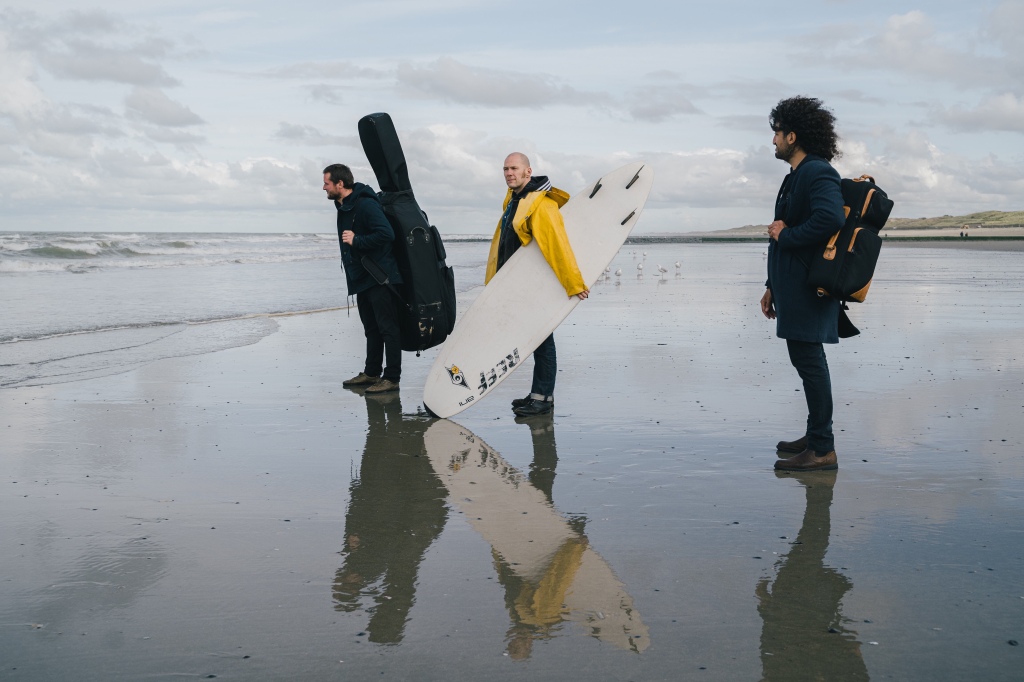
Being one of the very few places over there with a very ancient character to it, quite the contrast with all those posh new built projects in the neighbourhood.
It has a recording studio, which we use as a rehearsing room. It happens to have a big window with a magnificent view to the boats passing by.
Like the BZ189🎶🛥, spotted while looking outside pretty randomly: which-boat-is-here? Songs, titles and tracks are born here. This is where our first EP was made. Clearly 🙂
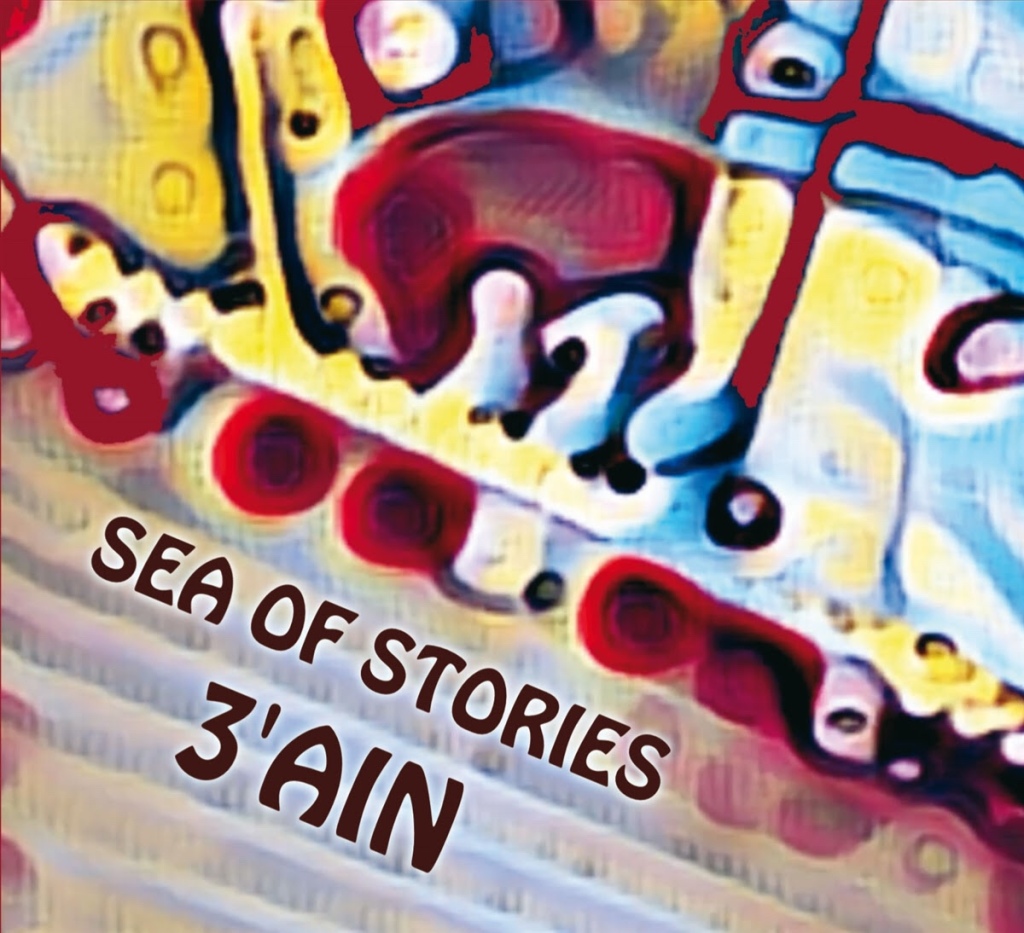
AC: Great title.
Piet: Actually we didn’t invent it ourselves. During a livestream in confinement, playing some sort of première of the song, we asked our virtual audience to come up with a title.
Everyone had a strong souvenir of the period you weren’t allowed to go the seaside etc. Possibly they were inspired by former works of us. Explaining why the Ostend-reference is still there.
Piet Maris
“Exchange between cultures”
AC: 3’Ain tends to reach a large audience ?
Piet: I also find it very charming to see a punkrock band in concert. They tend to reach a more specific audience. But a lot of music is broading up these days. I like to keep the music accessible in all my projects. Always seeking common ground. For 3‘Ain, in different fields of western music, going in dialogue with middle eastern traditions.
Nor me, nor the bass player Otto, are very familiar with all those traditions. In that way Yamen is facilitating our exchange between cultures.
Our song “Meeting Issues” represents his feeling of being “wired”, how hard it is missing his family all over the world…
ArtistCongratz’ cue to make y’all experience this narrative sound of 3’Ain in even more intriguing titles like Tango Soleil du Nord🎶 Listen below 🤳👇
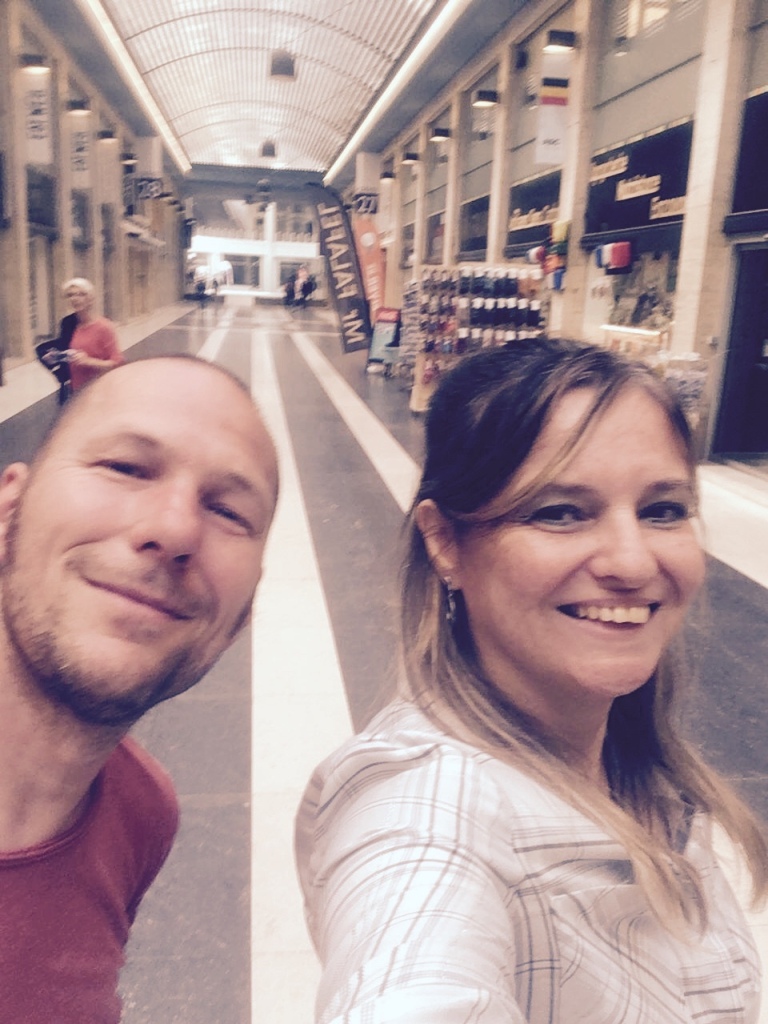
- September 9th: Sjruur, Maaseik
- October 24th: Entr (De Centrale), Gent
- January 14th: Jazzy Sunday (Leietheater), Deinze
- January 19th: Cinéma Le Parc (Les Grignoux), Luik (Liège)
